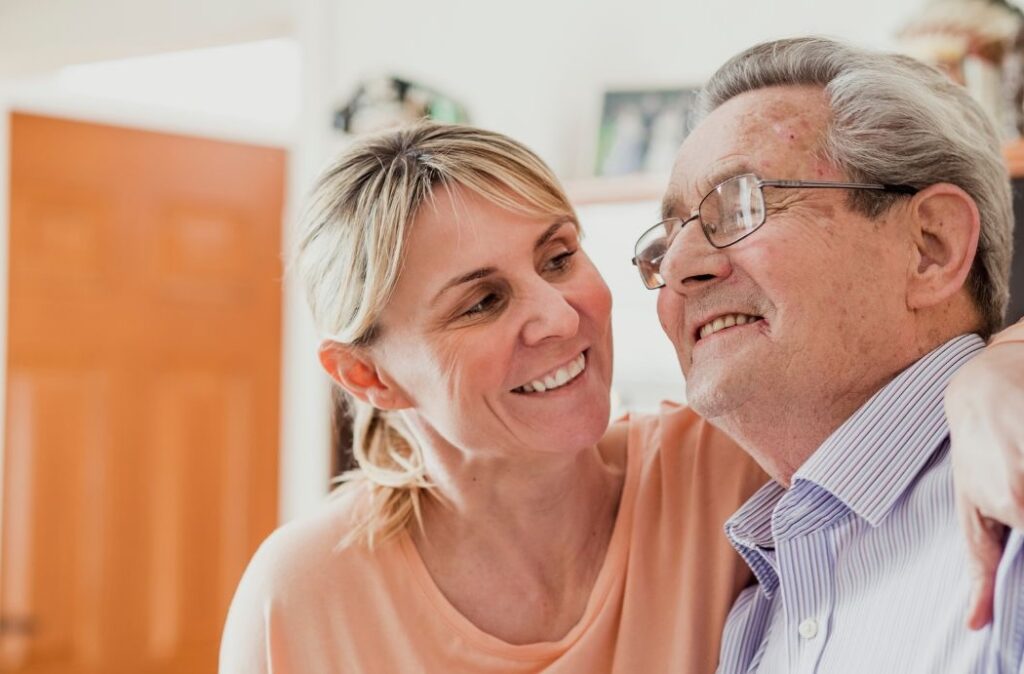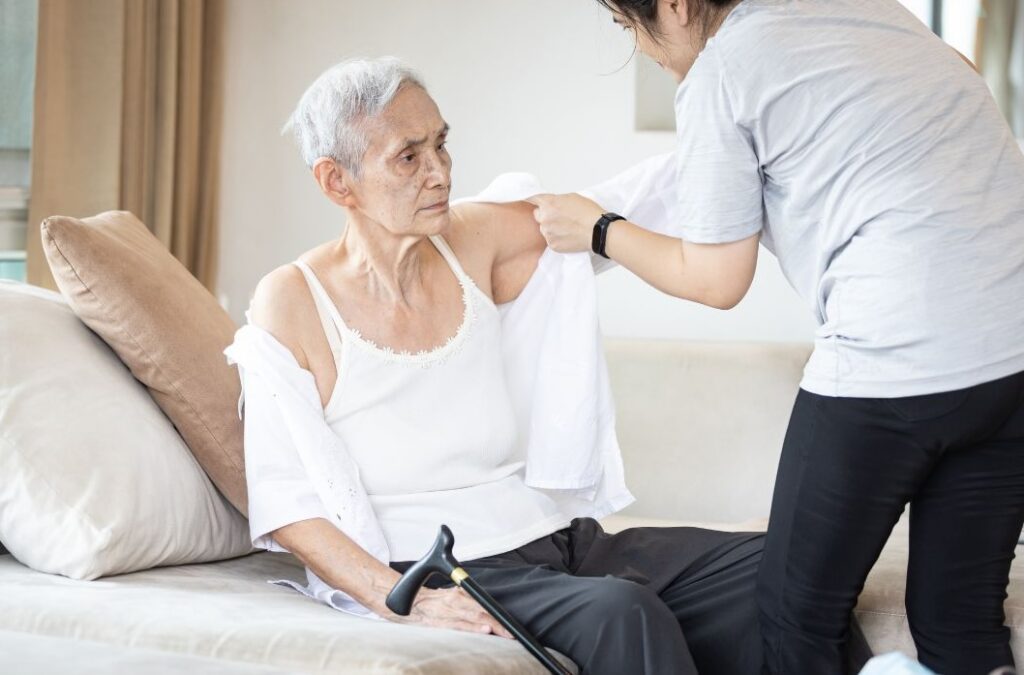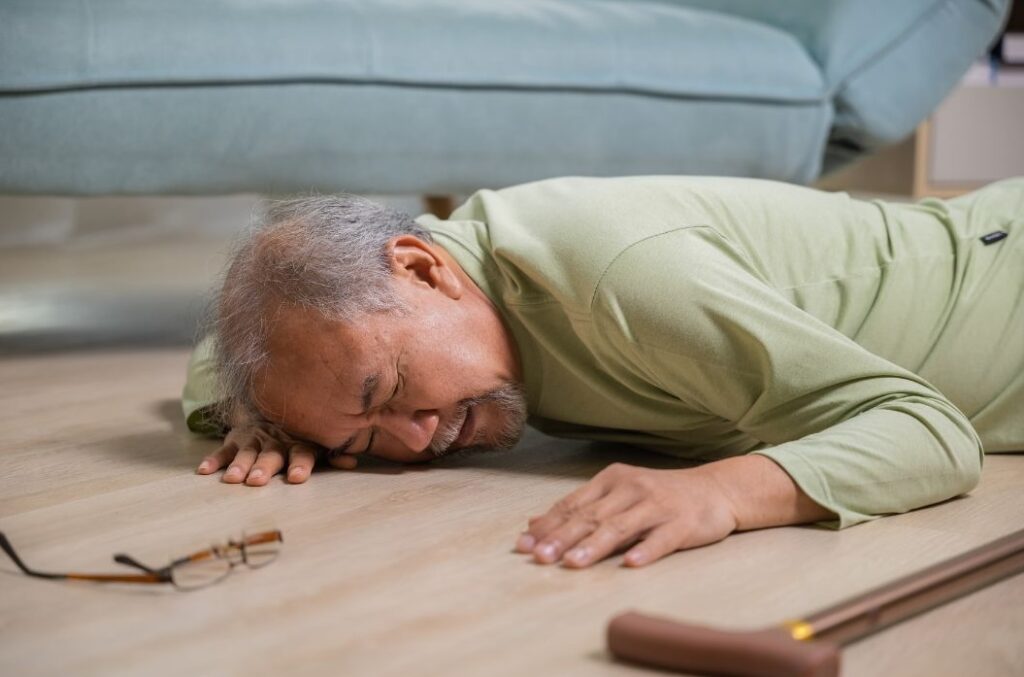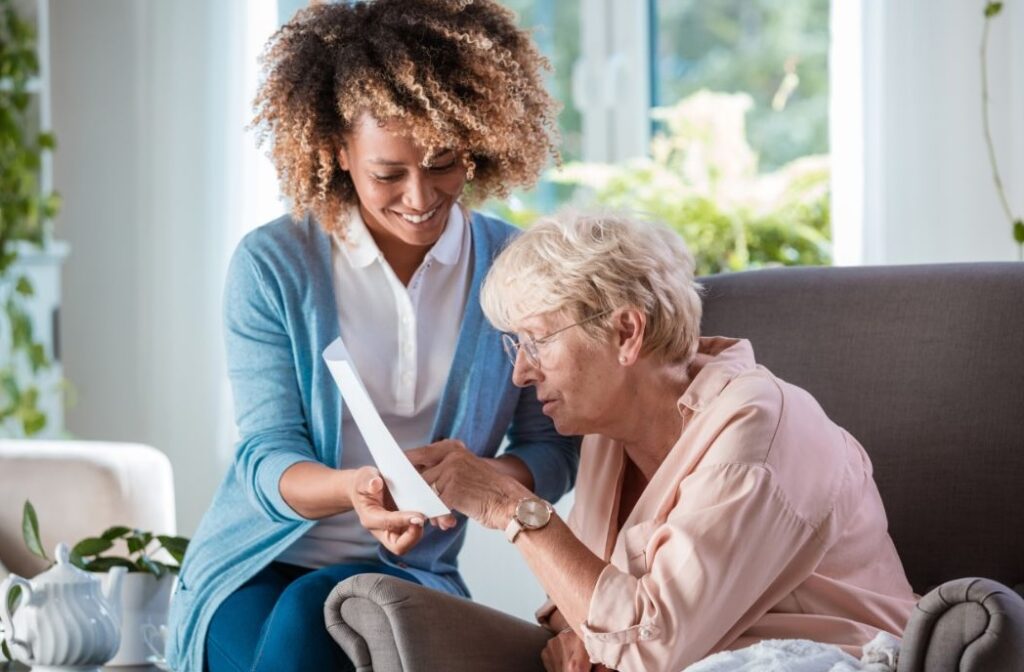A stroke can be a challenging thing to overcome, not just for the individual who has experienced it but also for family members. In such circumstances, a live-in carer can be a great option to consider.
A live-in carer can help alleviate stress for the stroke survivor and their family, relieving them of tasks and providing specialised support, both of which can help to speed up the recovery process.
There are several other benefits of having a live-in carer when recovering from a stroke; whether you or someone you love is a stroke survivor, you must understand what these are.
What is stroke recovery?
A stroke is something that can affect any one of us, and often, it is unpredictable, happening when we least expect it. This condition is an attack of the brain when the blood supply to part of it is cut off.
The main symptoms of a stroke are:
- Sudden weakness or numbness on one side.
- Difficulty speaking clearly.
- Blurred vision or sight loss.
- Memory loss.
- Dizziness.
- Severe headaches.
The lack of oxygen to the brain can cause significant consequences, such as affecting the body’s functions and, in some cases, it may lead to death.
Often, a stroke survivor will need to relearn skills such as talking and coordination, making a period of rehabilitation necessary. This is when you may need to consider stroke care for you or the individual who has experienced a stroke.
Recovery can vary, depending on the severity. So, it’s helpful for stroke survivors to have supportive and professional care around them, assisting with day-to-day tasks, providing mental and physical support, and helping them relearn lost skills.
It is also critical for the individual’s family to have appropriate help. A live-in carer can supplement the support group for the stroke survivor’s family, providing guidance and emotional support.
1. 24/7 support and monitoring

A stroke can cause severe damage to lifestyle skills we may usually take for granted, such as talking and communication, as well as coordination and mobility.
A live-in carer will enable the individual to talk freely without judgement. If their speech is impaired, they will need to relearn this skill, so having someone they feel comfortable with is key to regaining it. As they get acquainted with a carer, they will become more comfortable in their company. The carer can help them explore new communication methods, building their confidence.
Having 24/7 support and monitoring can also be very useful during the night. The carer can assist with mobility in and out of bed and help with things such as trips to the bathroom.
Furthermore, things like bathing, dressing, and using the toilet may have become difficult; however, a live-in carer can assist with these personal tasks.
Overall, the live-in carer provides vigilant, specialised care and tracks progress as the recovery continues.
2. Medication management

If someone has suffered a stroke, they’ll most likely require medication to treat the condition. However, they may not be able to administer the medication by themselves, requiring support, which a carer can give.
A live-in carer can ensure that all medication routines are followed precisely. They can also be on hand to liaise with healthcare professionals, providing feedback and progress reports as the recovery process continues.
Moreover, a live-in carer can ensure the attendance of appointments with medical professionals, driving individuals to and from the hospital or practice.
3. Assistance with daily living

A stroke survivor may suffer from mobility and mental symptoms as a result of the stroke, so a live-on carer could be beneficial to help with daily living. This may include simple tasks such as getting around the home, cooking, cleaning, and even attending social events.
An individual may also struggle with making decisions or have trouble concentrating; a live-in carer can be on hand to offer emotional and mental support and guide an individual when making decisions.
4. Safety and fall prevention

Some of the after-effects of a stroke include mobility problems and coordination, so they may be prone to trips and falls. A live-in career gives 24/7 support, reducing the likelihood of accidents, alleviating worries for the individual, and giving extra peace of mind to the family members.
Sometimes, mobility and coordination problems can be long-term. In this instance, a carer can offer support and advice regarding adaptations needed in the home to resume everyday routines.
For example, some homes may have stairs, and it might be difficult for a stroke survivor to use them; a specialised carer can advise on the equipment they should use.
As mentioned, a live-in carer provides 24/7 support for stroke patients, so if they struggle getting around their home, a carer can help at any time of day, for example, if they need assistance moving up and down the stairs.
5. Emotional and social support

A stroke can be life-changing for all involved, but especially for a stroke survivor. It can leave someone feeling angry, upset, and frustrated. A live-in carer can offer much-needed support, remaining calm and compassionate.
In some cases, an individual’s mood can dip into anxiety and even depression. A live-in carer can reduce the chances of that happening by being supportive and positive, offering reassurance and 24/7 help and guidance.
Isolation is one of the most significant factors of depression and low mood, and a stroke can cause a person to be isolated from their daily life, especially if they are struggling with lasting symptoms. A carer can offer professional and emotional support to mitigate loneliness and its effects. Companionship and support within the comfort of their own home can alleviate stress for the individual, helping them regain their confidence.
Ultimately, having a live-in carer for a stroke patient eases stress for the individual and their family, helping them regain skills and making the recovery process more comfortable – potentially even speeding it up. To learn more about our carers and services, contact our team at IP Live In Care.
